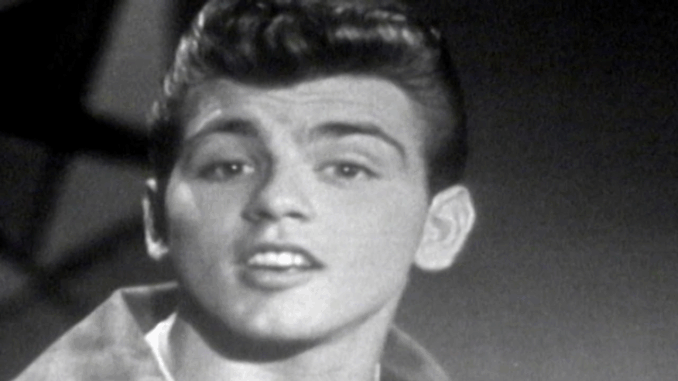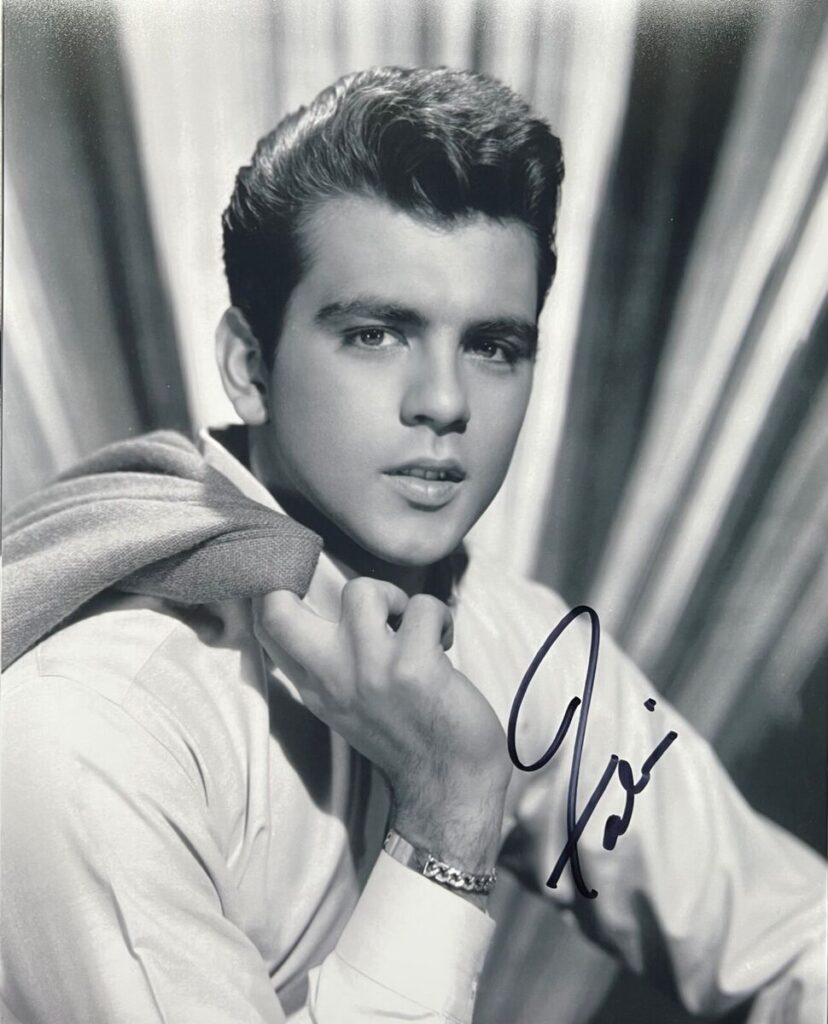
From Row Home to Rock and Roll
In the summer of 1958, a South Philadelphia teenager named Fabian Forte went from watching American Bandstand on his family’s television to being one of its most recognizable stars. He hadn’t trained as a singer. He didn’t come from a musical dynasty. But what he had was the kind of face that stopped a generation in its tracks—and the determination to make something of it.
Before fame found him, Fabian was a regular kid, helping take care of his father who had suffered a heart attack. One afternoon, a talent scout from Chancellor Records spotted him sitting on the front steps of his row home. A few days later, he was backstage at Bandstand.

The Bandstand Breakthrough
American Bandstand was the perfect launchpad for a teen idol. Broadcast daily and hosted by the ever-charming Dick Clark, it was the pulse of American youth. Fabian’s first appearance—introduced not as a polished performer, but as a neighborhood kid with potential—caused an instant stir.
Girls screamed. Fan letters arrived in buckets. Even before he had a proper hit, Fabian’s image was already a brand: a rebel in a cardigan, a crooner with bedroom eyes.
His breakthrough single, “Turn Me Loose,” hit the charts soon after. Performed on Bandstand with a shaky voice and a confident smile, it didn’t matter that he wasn’t technically refined. He had the look, the timing, and the Bandstand Effect behind him.

The Teen Idol Machine
Fabian quickly became part of the Teen Idol Trinity with Frankie Avalon and Bobby Rydell—three local boys who rode the same Bandstand wave. With his wavy hair, earnest demeanor, and camera-friendly charm, Fabian was marketed through fan magazines, bubblegum cards, and teen tours.
He sang hits like “Tiger”, “I’m a Man”, and “Hound Dog Man”, often appearing on Bandstand to promote them. Each appearance made the phones ring at WFIL and flooded the mailroom with fan requests.
What Bandstand gave him wasn’t just visibility—it was validation. Being seen dancing with the Regulars, laughing with Dick Clark, and walking through the crowd gave fans the feeling they knew him.

Surviving Stardom
Unlike some teen idols who faded with the next trend, Fabian held on. He later admitted: “I wasn’t the best singer. But I learned to be a performer. Bandstand gave me that stage—and the guts to keep going.”
By the mid-60s, he was acting in films, touring the country, and even appearing on television sitcoms. Though the music industry changed, Fabian’s connection to Bandstand remained his origin story—and a badge of pride.
Even decades later, at reunions and retrospectives, fans would tell him: “I remember the day you first sang on Bandstand. You changed everything.” And maybe he did.

Legacy of a Face, and a Feeling
Today, Fabian is remembered not just for the songs, but for what he represented. He was the kid from the block who dared to dream. The boy-next-door who turned into a poster on bedroom walls across America.
And most importantly, he was proof of the Bandstand Effect: that in the right moment, with the right song and the right smile, a teenager from South Philly could become a national sensation overnight.
Did You Watch Him Rise?
Were you watching the day Fabian first hit the stage? Do you remember the moment the room shifted and the crowd screamed? We’d love to hear what you remember most.
📝 Share your memory with us here: